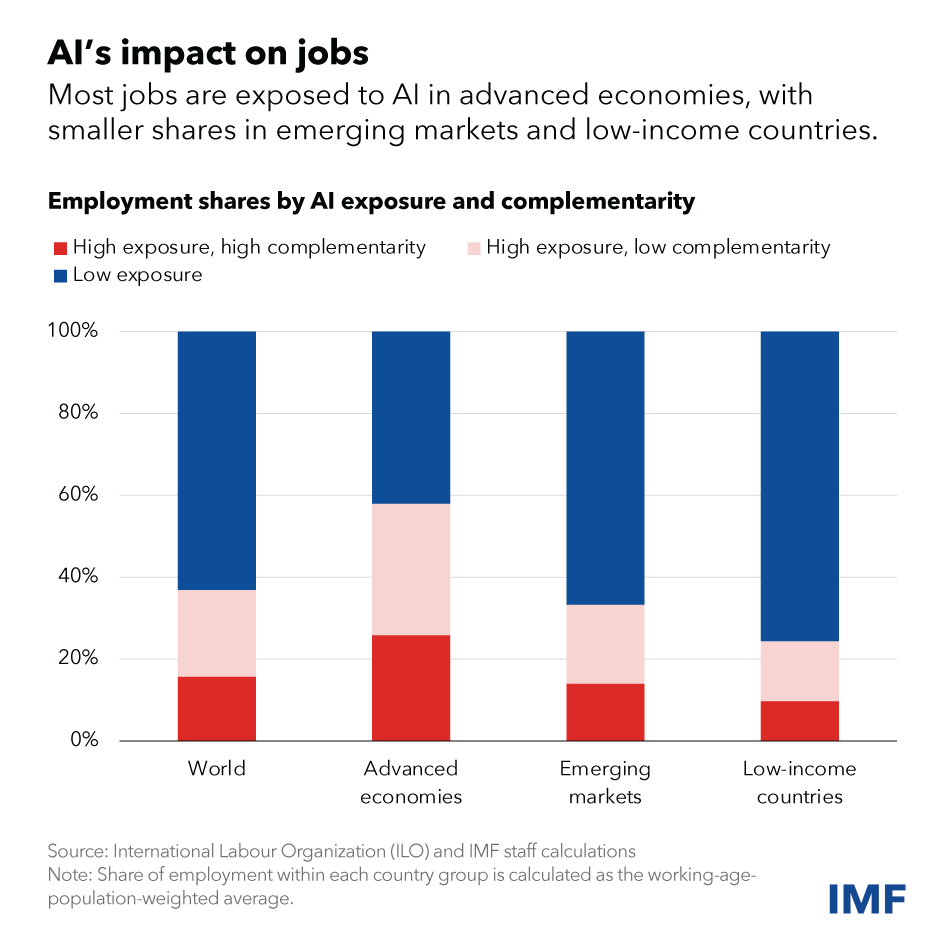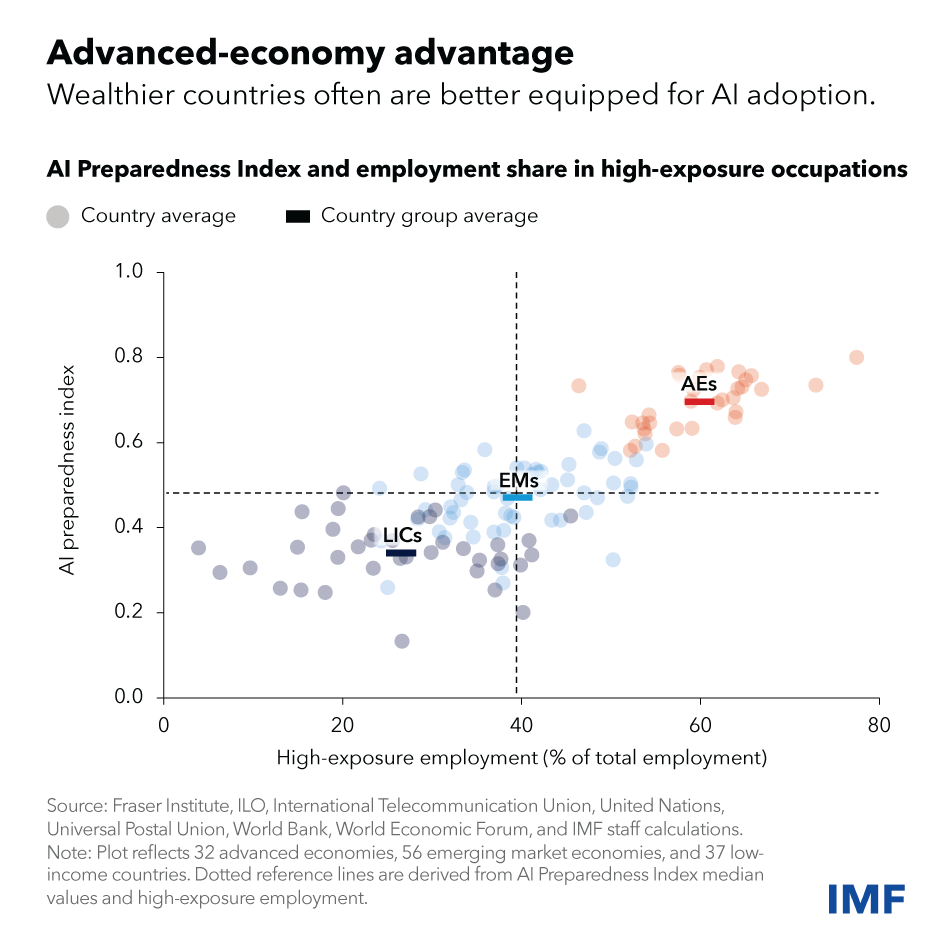Artificial intelligence (AI) will be a boon or bane to 40% of jobs around the world according to the International Monetary Fund (IMF).
In a blog published on the IMF website, the global financial institution shared the findings of its recent analysis of AI’s potential impact on jobs and countries globally.
In lower-income and emerging markets like the Philippines, the AI disruptions could be lower from 26% to 40% because there is less infrastructure and skills to integrate AI but this could lead to greater inequality among countries over the long term, IMD said.

Advanced economies, such as Singapore, will be greatly impacted by AI with much as 60% of jobs affected. About half of the exposed workers will experience greater productivity and demand while the other half will become redundant and less in demand due to AI. However, these economies will have more opportunities to leverage the benefits of AI.
IMF also shared that without the correct policies in place, there will be a greater income gap among countries and within those countries, among workers. AI can crunch data and simulate complex problems which will lead to more innovations and advances in countries that can harness AI. Countries without the capacity to utilize AI will be left with low-value job markets. Even among their workers, the young, who can generally relate to AI will find greater opportunities than those already in the advanced years of their careers.
This potential widening of the income gap must be averted. Policymakers must put the right guidelines so that AI, instead of worsening present social tensions, can help dissipate them.
Businesses around the world are integrating AI into their systems at breakneck speed, making it more urgent for the government to quickly act. Leaders must ensure that AI is an inclusive technology. Not a tool only for the rich to become richer but for all of society to become better.
IMF also revealed that their recent AI Preparedness Index can help countries get started in crafting the right policies. The index measures readiness in digital infrastructure, human capital and labor-market policies, innovation and economic integration, and regulation and ethics.

For example, the human capital and labor-market policies component analyzes years of schooling, job-market mobility, and the proportion of the population covered by social safety nets. The regulation and ethics component reviews the adaptability to digital business models of a country’s legal framework and the presence of strong governance for effective enforcement, according to the IMF
IMF assessed the readiness of 125 countries using the index. Guided by the insights from the AI Preparedness Index, advanced economies should prioritize AI innovation and integration while developing robust regulatory frameworks. This approach will cultivate a safe and responsible AI environment, helping maintain public trust. For emerging markets and developing economies like the Philippines, the priority should be laying a strong foundation through investments in digital infrastructure and a digitally competent workforce.
AI, behind all the media buzz, is still a tool that can be a bane to many or benefit most depending on the hands that wield it.





